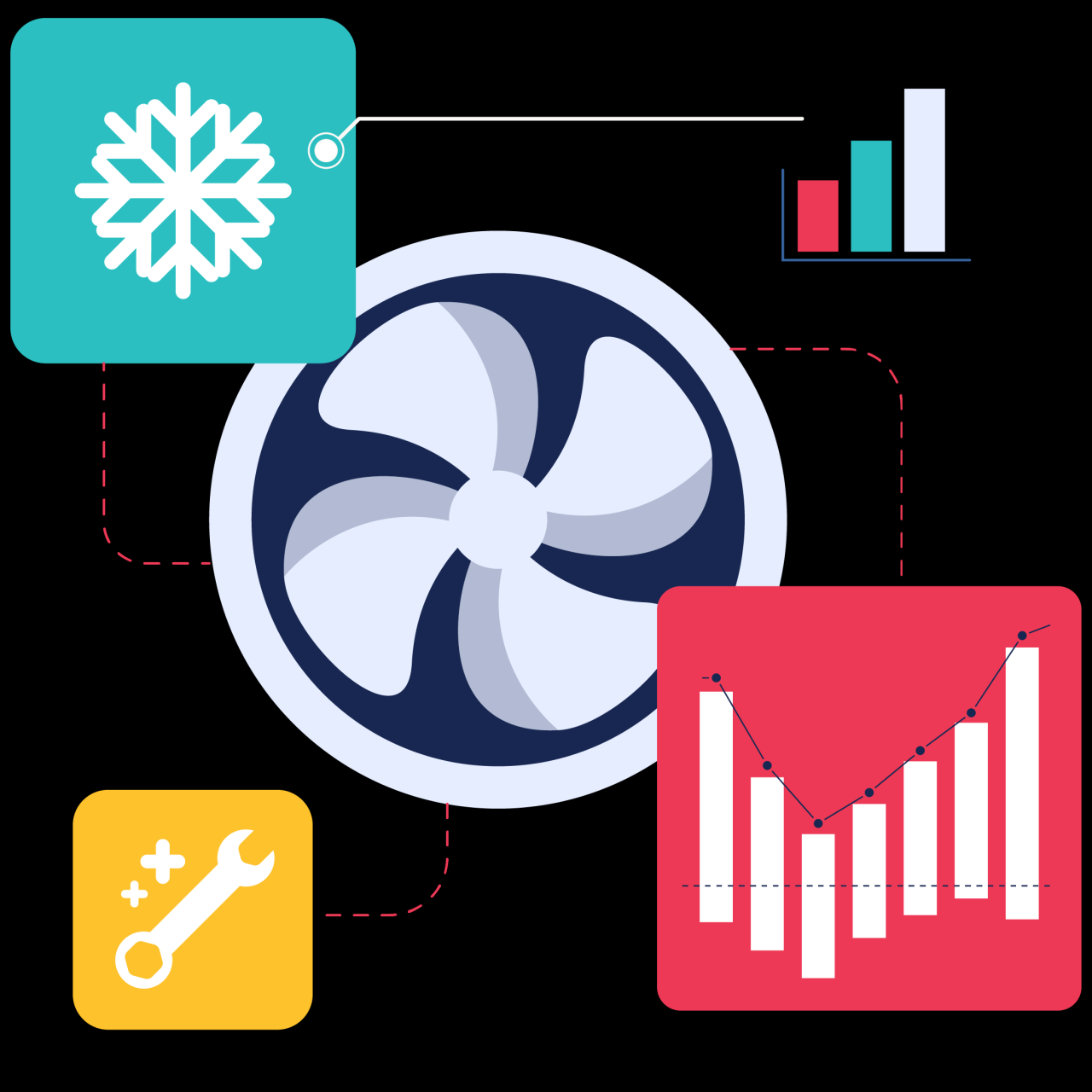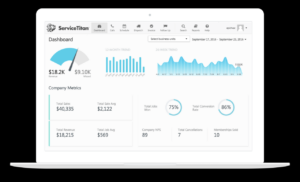In the ever-evolving landscape of the HVAC industry, field service management software has emerged as a game-changer. This innovative technology streamlines operations, boosts efficiency, and enhances customer satisfaction, propelling HVAC businesses towards unprecedented success.
Delving into the intricacies of HVAC field service management software, this comprehensive guide explores its key features, quantifies its benefits, and provides expert guidance on choosing and implementing the right solution. With real-world case studies and best practices, this resource empowers HVAC businesses to unlock the full potential of this transformative technology.
Contents
- 1 Features of HVAC Field Service Management Software
- 2 Benefits of Using HVAC Field Service Management Software
- 3 How to Choose the Right HVAC Field Service Management Software
- 4 Best Practices for Using HVAC Field Service Management Software
- 5 Case Studies of HVAC Field Service Management Software Success
- 6 Final Conclusion
Features of HVAC Field Service Management Software

HVAC field service management software is a powerful tool that can help businesses streamline their operations, improve efficiency, and increase customer satisfaction. When choosing a software solution, it’s important to look for features that will meet the specific needs of your business.
Some key features to look for include:
- Scheduling:The software should allow you to easily schedule appointments, track technician availability, and dispatch technicians to jobs.
- Tracking:The software should provide real-time visibility into the status of all jobs, including technician location, time spent on site, and materials used.
- Billing:The software should automate the billing process, including generating invoices, tracking payments, and managing customer accounts.
- Reporting:The software should provide robust reporting capabilities that allow you to track key metrics, such as technician productivity, customer satisfaction, and revenue.
By choosing a software solution that includes these key features, you can streamline your HVAC field service operations, improve efficiency, and increase customer satisfaction.
Mobile Functionality
In today’s mobile world, it’s important to choose a software solution that offers mobile functionality. This will allow your technicians to access the software from anywhere, at any time.
Mobile functionality can provide a number of benefits, including:
- Increased technician productivity
- Improved customer satisfaction
- Reduced paperwork
- Lower costs
If you’re looking for a software solution that can help you streamline your HVAC field service operations, improve efficiency, and increase customer satisfaction, then you should definitely consider a solution that offers mobile functionality.
Benefits of Using HVAC Field Service Management Software
HVAC field service management software can provide numerous benefits to businesses, including saving time and money, improving customer satisfaction, and increasing revenue.One of the most significant benefits of using HVAC field service management software is that it can help businesses save time.
By automating tasks such as scheduling appointments, dispatching technicians, and tracking work orders, the software can free up valuable time that can be spent on more important tasks, such as growing the business.In addition to saving time, HVAC field service management software can also help businesses save money.
By optimizing technician schedules and routes, the software can reduce fuel costs and other expenses. Additionally, the software can help businesses track inventory and equipment usage, which can help to reduce waste and improve profitability.Another benefit of using HVAC field service management software is that it can help businesses improve customer satisfaction.
By providing customers with real-time updates on the status of their service requests, the software can help to reduce anxiety and improve the overall customer experience. Additionally, the software can help businesses track customer feedback, which can be used to identify areas for improvement.Finally,
HVAC field service management software can help businesses increase revenue. By improving customer satisfaction and retention, the software can help businesses attract new customers and grow their business. Additionally, the software can help businesses track sales and marketing data, which can be used to identify opportunities for growth.
Improved Efficiency
HVAC field service management software can help businesses improve efficiency in a number of ways. By automating tasks such as scheduling, dispatching, and tracking, the software can free up valuable time that can be spent on more important tasks. Additionally, the software can help businesses optimize technician schedules and routes, which can reduce fuel costs and other expenses.
Increased Productivity
HVAC field service management software can help businesses increase productivity by providing technicians with the tools they need to be more efficient. For example, the software can provide technicians with real-time access to customer information, work orders, and inventory levels.
This information can help technicians to quickly and easily complete their tasks, which can lead to increased productivity.
Improved Customer Service
HVAC field service management software can help businesses improve customer service by providing customers with real-time updates on the status of their service requests. This information can help to reduce anxiety and improve the overall customer experience. Additionally, the software can help businesses track customer feedback, which can be used to identify areas for improvement.
Increased Revenue
HVAC field service management software can help businesses increase revenue by improving customer satisfaction and retention. By providing customers with a positive experience, the software can help businesses attract new customers and grow their business. Additionally, the software can help businesses track sales and marketing data, which can be used to identify opportunities for growth.
How to Choose the Right HVAC Field Service Management Software
Selecting the right HVAC field service management software is crucial for optimizing operations, enhancing efficiency, and improving customer satisfaction. Here’s a step-by-step guide to help you make an informed decision:
Key Factors to Consider
- Business Requirements:Identify your specific needs, such as scheduling, dispatching, invoicing, and reporting.
- Scalability:Ensure the software can accommodate your current and future growth.
- Cost:Consider the software’s licensing fees, implementation costs, and ongoing maintenance.
- Ease of Use:The software should be user-friendly and intuitive for both field technicians and office staff.
- Integration:Check if the software integrates with your existing business systems, such as CRM or accounting software.
Step-by-Step Evaluation Guide
- Define Your Requirements:Determine your key business requirements and prioritize them.
- Research Options:Explore different software vendors and compare their features, pricing, and customer reviews.
- Request Demos:Schedule demos with shortlisted vendors to see the software in action.
- Evaluate Usability:Test the software’s ease of use, navigation, and mobile accessibility.
- Assess Scalability:Consider the software’s capacity to handle your current and future operations.
- Negotiate Pricing:Discuss pricing options and explore any potential discounts or payment plans.
- Make a Decision:Based on your evaluation, select the software that best aligns with your needs and budget.
Best Practices for Using HVAC Field Service Management Software
Implementing and using HVAC field service management software can streamline your operations, improve customer satisfaction, and boost revenue. Here are some best practices to help you get the most out of your software:
Establish clear processes and workflows for using the software. This will help ensure that everyone on your team is using the software consistently and effectively.
Training and Adoption
Provide comprehensive training to your staff on how to use the software. This will help them get up to speed quickly and avoid making mistakes.
Make sure that your staff has access to support resources, such as documentation, online help, and a dedicated support team. This will help them troubleshoot any problems they encounter.
Data Management
Keep your data clean and up-to-date. This will help you generate accurate reports and make informed decisions.
Use the software’s reporting features to track your performance and identify areas for improvement.
Customer Communication
Use the software to communicate with your customers. This will help you keep them informed about the status of their service requests and provide them with updates on their equipment.
Use the software’s scheduling features to optimize your technicians’ schedules. This will help you reduce travel time and improve customer satisfaction.
Case Studies of HVAC Field Service Management Software Success
HVAC field service management software has proven to be a valuable tool for businesses in the industry, enabling them to streamline operations, improve efficiency, and enhance customer satisfaction. Here are a few case studies that showcase the success achieved by businesses that have implemented this technology:
Improved Efficiency and Reduced Costs
A leading HVAC service provider implemented a field service management software solution that automated scheduling, dispatching, and invoicing. This resulted in a 30% reduction in administrative time, freeing up technicians to focus on revenue-generating activities. Additionally, the software’s real-time tracking capabilities improved technician utilization by 25%, leading to significant cost savings.
Enhanced Customer Satisfaction
Another HVAC company integrated a field service management software with a customer portal, allowing customers to schedule appointments, track technician progress, and receive updates on the status of their repairs. This enhanced transparency and communication resulted in a 15% increase in customer satisfaction ratings and a 10% reduction in service call cancellations.
Streamlined Operations and Improved Productivity
A large commercial HVAC contractor implemented a field service management software that integrated with their CRM and accounting systems. This streamlined operations, eliminated duplicate data entry, and improved collaboration between different departments. The software’s mobile capabilities also enabled technicians to access real-time information and complete work orders on the go, resulting in a 20% increase in productivity.
Final Conclusion
As the HVAC industry continues to evolve, field service management software will remain an indispensable tool for businesses seeking to stay competitive and exceed customer expectations. By embracing this technology, HVAC companies can optimize their operations, reduce costs, and build lasting relationships with their clients.
The future of HVAC field service is bright, and those who harness the power of this transformative software will undoubtedly reap its rewards.

